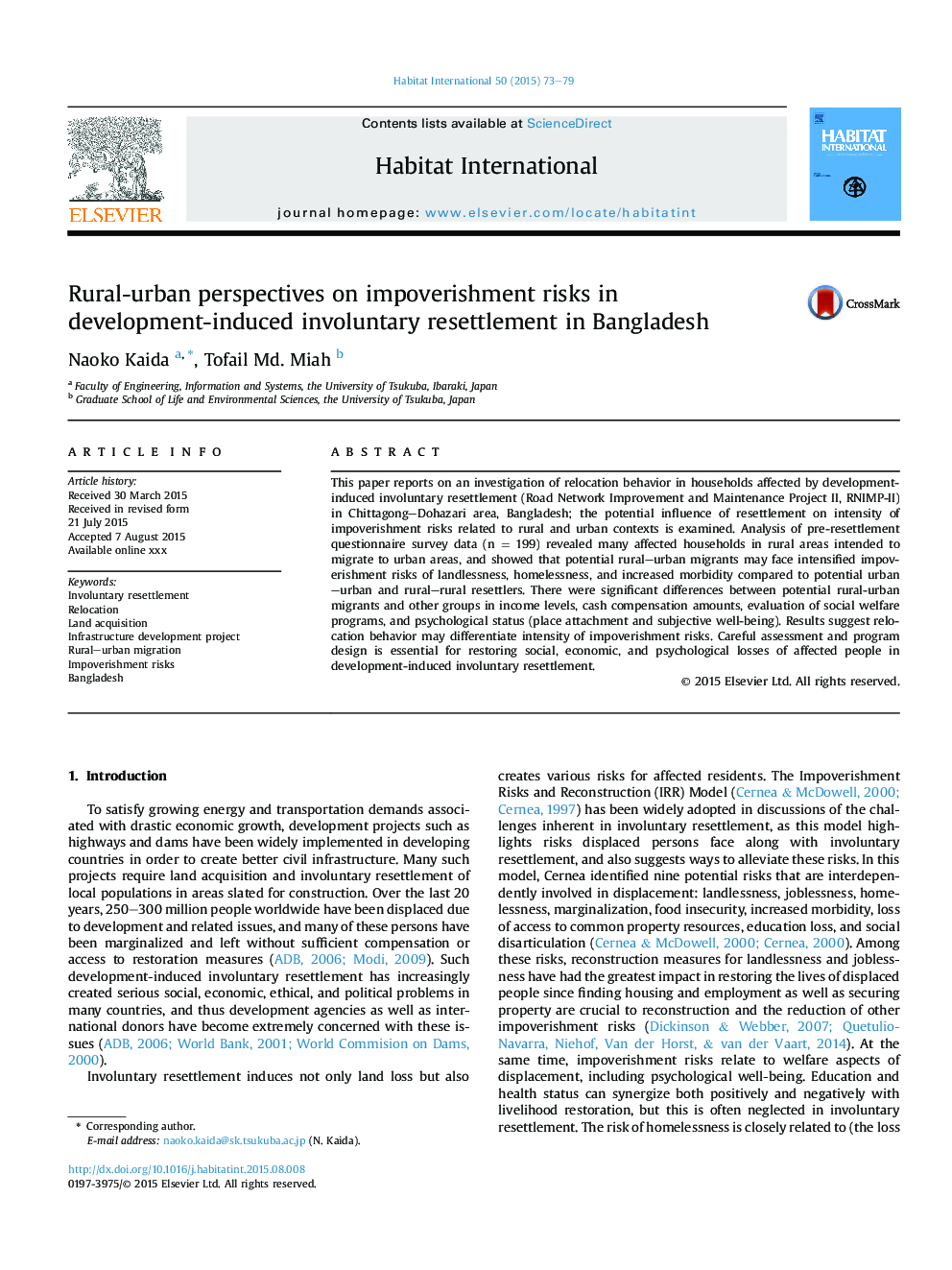| Article ID | Journal | Published Year | Pages | File Type |
|---|---|---|---|---|
| 7455835 | Habitat International | 2015 | 7 Pages |
Abstract
This paper reports on an investigation of relocation behavior in households affected by development-induced involuntary resettlement (Road Network Improvement and Maintenance Project II, RNIMP-II) in Chittagong-Dohazari area, Bangladesh; the potential influence of resettlement on intensity of impoverishment risks related to rural and urban contexts is examined. Analysis of pre-resettlement questionnaire survey data (n = 199) revealed many affected households in rural areas intended to migrate to urban areas, and showed that potential rural-urban migrants may face intensified impoverishment risks of landlessness, homelessness, and increased morbidity compared to potential urban-urban and rural-rural resettlers. There were significant differences between potential rural-urban migrants and other groups in income levels, cash compensation amounts, evaluation of social welfare programs, and psychological status (place attachment and subjective well-being). Results suggest relocation behavior may differentiate intensity of impoverishment risks. Careful assessment and program design is essential for restoring social, economic, and psychological losses of affected people in development-induced involuntary resettlement.
Related Topics
Social Sciences and Humanities
Social Sciences
Development
Authors
Naoko Kaida, Tofail Md. Miah,
